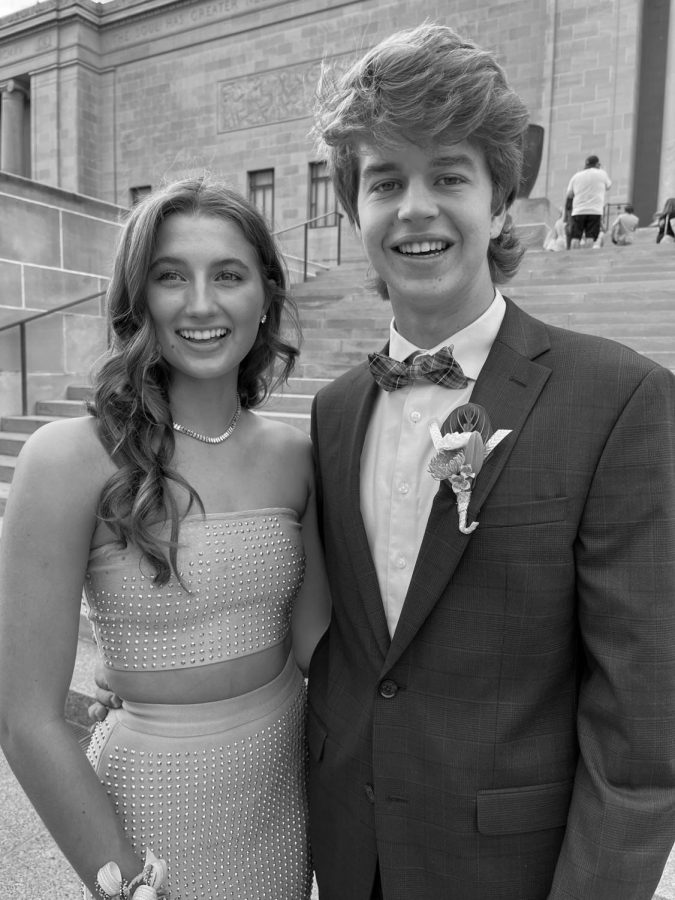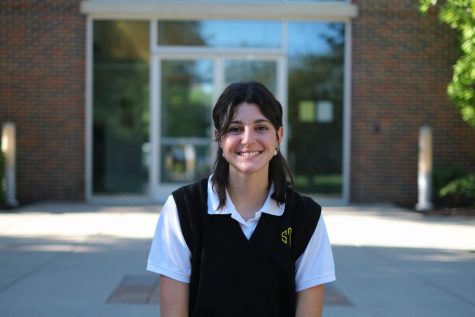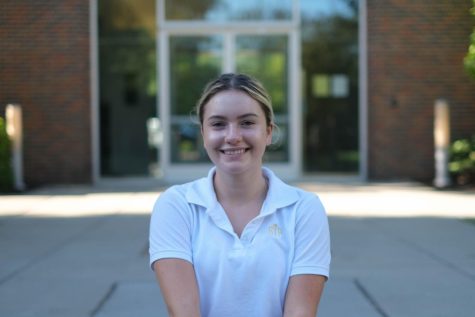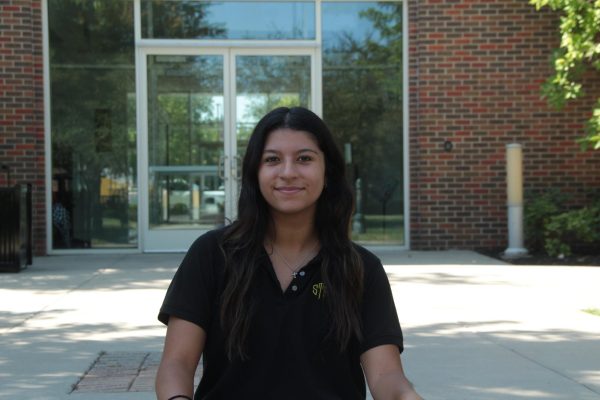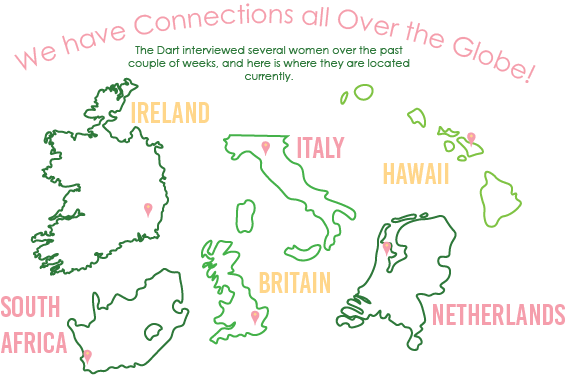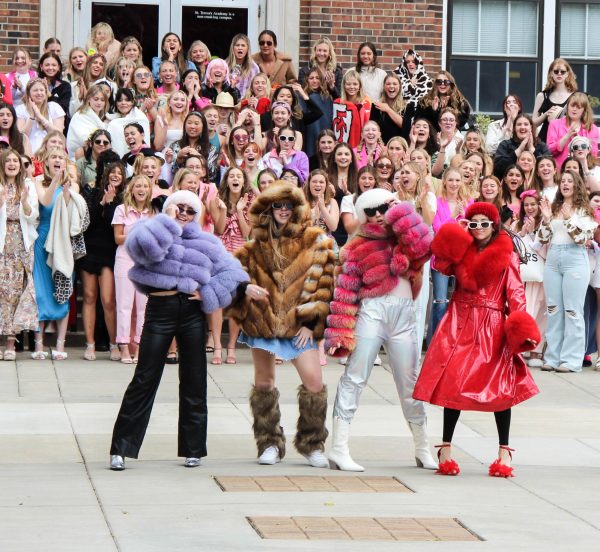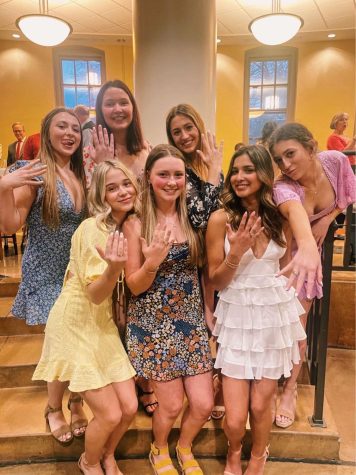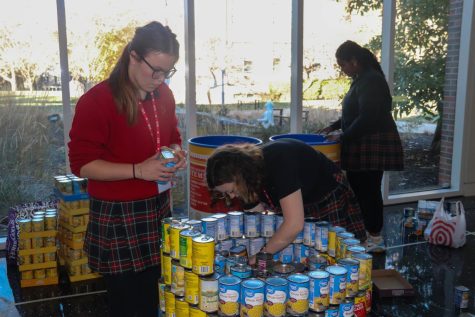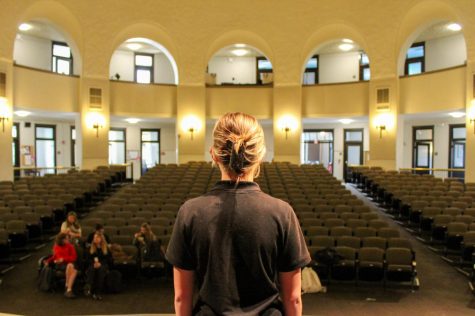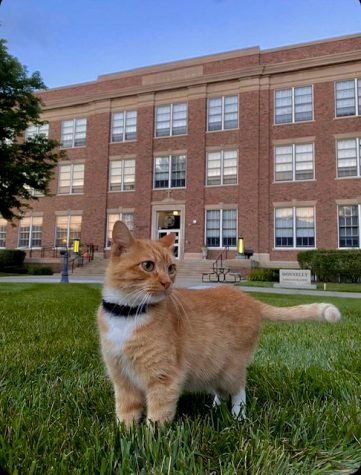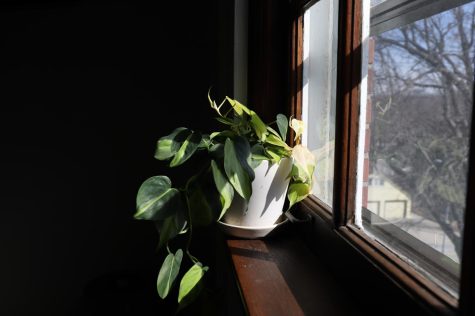Crush Culture
February 17, 2023
Walking through her boyfriend’s apartment in Lawrence, Kansas, 2017 alumna Marin Brown stops short to pick up a picture frame—a throwback from her senior prom. Brown and her current boyfriend met through an “accidental” prom set-up: Brown had just gone through a breakup and her now-boyfriend had spent the week serving as a leader on his school’s Kairos retreat.
Looking back on the photo with new-found relationship knowledge led Brown to reflect on the role teenage romance plays in our society and question the impacts media has on meeting people in 2023.
“Social media has affected kids trying to meet people now,” Brown said. “I have a lot of sympathy for teens nowadays because it’s hard to meet someone organically. I have friends who are my age and want to date but feel like they have run out of options. We live in Kansas; 2 million people live here. There has to be someone you haven’t met before but they feel the only way people look for relationships is at bars or online.”
Bishop Meige senior Stella Cahalan began her first and current relationship the summer before her junior year of high school. Cahalan was introduced to her boyfriend by mutual friends after he had caught her eye freshman year. Being in a long-term relationship offers Cahalan a new perspective on relationships among her peers, specifically the way teenage relationships have evolved with the ever-changing times.
“There have been changes in the way people view teenage relationships over time,” Cahalan said. “Social media brings a new aspect into it all, especially in terms of getting to know people. I feel like there’s either a lot of this ‘friend of a friend’—which was the scenario I was in—or meeting someone online. There are pros and cons to that because there have been positive relationships that have come out of online dating or meeting online, but it’s also harder to find someone you genuinely like because it poses the question ‘Do you actually know them?’”
One student at Rockhurst High School hasn’t been in any serious relationships during his time there but is exposed to many different perspectives from his peers. Almost all of his closest friends have had partners long-term, giving him a different insight into high school dating.
“It can be pressuring to be in a relationship at times because of social media’s modern presence,” he said. “I think that dating in high school can be beneficial because it gives people experience for more serious relationships down the road, yet I also think people sometimes take high school relationships too seriously. They tend to focus too much on their relationship and miss the best portions of their own high school experiences.”
The influence of social media in today’s society has increased astronomically, affecting the ways people meet each other. For the Rockhurst High School student, it has created an easier way to communicate with others from different schools, opening up doors to opportunities and creating new relationships.
“It is definitely easier to meet people because of social media,” he said. “I think going to an all-boys school can be difficult when trying to form relationships with anyone who I don’t see every day at Rockhurst.”
Dating in high school can also have some added pressure, especially when it comes to seeing most of your peers being in relationships. STA sophomore Olivia Bohon believes that the expectations of high school dating are more paramount than their realities.
“I feel like dating in high school isn’t as big of a deal as you think it will be when you’re younger,” Bohon said. “Everyone’s more lowkey and people tend to worry more about themselves than you think they will.”
In addition to the impact social media has played on teenagers meeting people, Cahalan believes the media gives young people false expectations for who and how they should be dating.
“You get this expectation or sort of ‘bar’ to measure your relationship to those you see online and in the movies or even just relationships you see around you,” Cahalan said. “I’ve felt those expectations and seeing that bar has helped me realize the importance of knowing it’s there, but also knowing that every relationship is so different, and comparing your relationship to another relationship is one of the most toxic things you can do because everyone is genuinely so different. The media and movies portray teenage relationships more dramatically.”
Bohon and fellow STA sophomore Mia Pachardo believe social media hurts young people’s expectations regarding high school dating.
“Social media is fake,” Bohon said. “When you’re little [teenage movies and television shows] feel like a dream and when you grow up it’s upsetting that it doesn’t come true. High school is not the same as “High School Musical” and it’s disappointing.”
“I think social media just shows the best part of high school and it doesn’t really prepare you,” said Pachardo.
Social media presence wasn’t as monumental when Brown was in high school and figuring out how to navigate the world of dating, but movies and books acted as the equivalent of setting the teen relationship bar too high. When reflecting on her time in high school, Brown appreciates the media that helps foster a positive outlook on dating between younger generations.
“I think of “Juno” as being the most honest portrayal of high school relationships because [Paulie] just stops talking to [Juno] and it feels so true,” Brown said, “That felt so honest. Teenagers—and I hope the readers are not offended by this—you don’t know a lot of what’s going on so you make rash decisions and do things that don’t always make sense later down the road but they are also things that you probably need to do. You need to cry to your pillow and scream and create good stories for your friends to make fun of you for years later. When [I was] broken up with, I did some crazy stuff and my friends even tease me about it now.”
Pachardo agrees with Brown’s sentiment that though most media portrayals of teen relationships can be false and glamorized, the movies that honestly demonstrate high school romance foster a healthy outlook when it comes to dating.
“I think “To All the Boys I’ve Loved” is an accurate portrayal of high school romance,” Pachardo said. “The movie itself can be cringy but the [way Peter and Lara Jean] started ‘fake dating’ feels realistic to what might happen in real life. In the third movie, they have a big struggle when they go to college, which I know is very accurate to what happens when teenagers are like, ‘Oh, you’re going to college, I’m going to college, or going to different places.’ I feel like parts of that are realistic.”
Parchardo’s understanding that dating in high school is messy and not linear concurs with the Rockhurst high school senior’s belief that teenage relationships often take trial and error—high schoolers are young and just starting to figure out their emotions and what their goals in life are.
“I don’t think dating in high school is necessary by any means,” he said. “ Especially if your partner is from another school and you begin to worry about what they are doing all the time.
While I do think it can be beneficial to get experience, in the end, not dating can save you from a lot of stress and drama. To each their own; if you meet the right person, dating in high school can be exactly what is meant for you, [but] everyone is just on their own path.”
Brown often found that while dating in high school, she took her relationships far too seriously and encouraged others to take a more light-hearted approach.
“I think teenage relationships are funny and lighthearted and that’s what they should be,” Brown said. “I wasn’t always the best practitioner of that lightheartedness so I encourage it even more now. Everyone wants a serious relationship but if it is a person forever, you have forever to be intense. Dating is not your vocation, so keep your vocation as being a student and a daughter and a sister and classmate before the vocation of being a girlfriend.”



